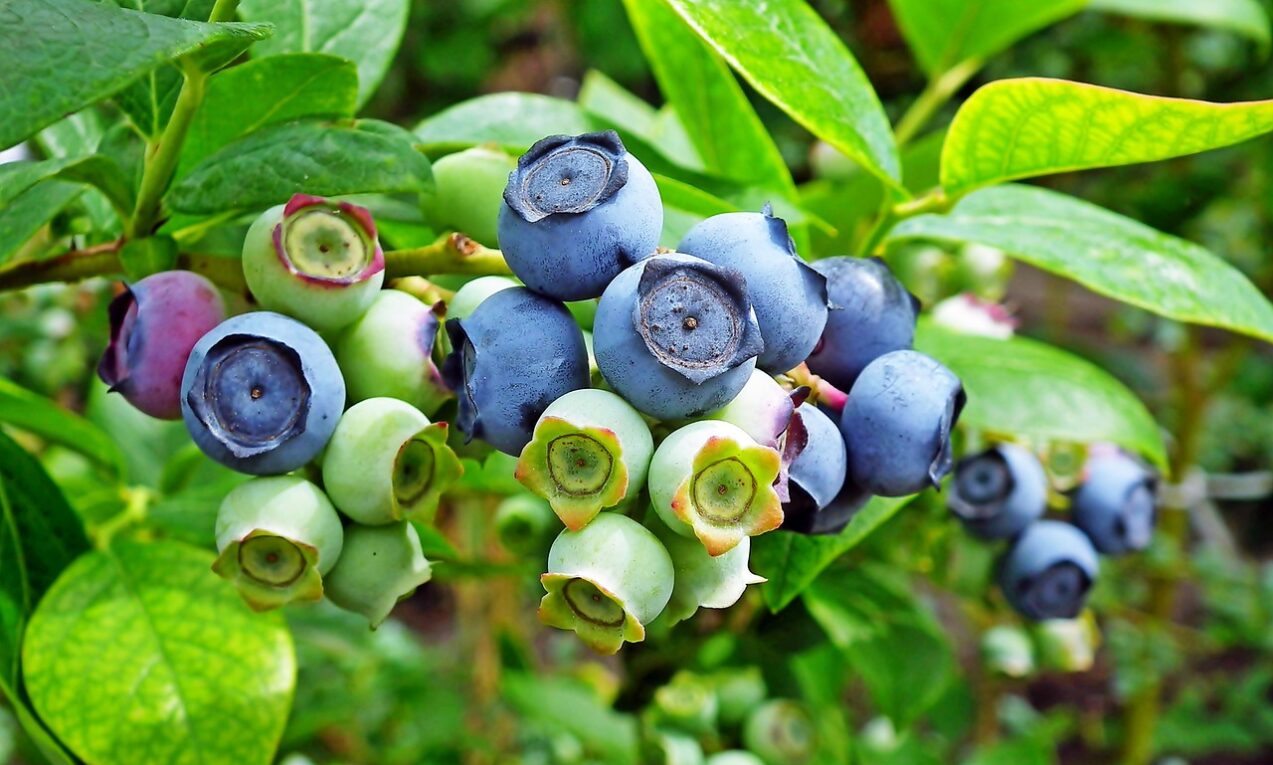Bilberries, (Vaccinium myrtillus), are small, dark blue berries native to Europe and closely related to blueberries. They grow on low shrubs and are found in heathlands and acidic soils. Bilberries are also known as European wild blueberries. They are part of the same plant family as blueberries, (Vaccinium corymbosum), and cranberries, but the bilberry berries are usually smaller and have a darker color than blueberries.
History of Bilberry Use
Bilberry has a long medicinal history in Europe. It has been used to treat anything from kidney stones to Typhoid fever. During World War 2 British pilots noted that Bilberry jam before a flight dramatically improved night vision. Modern research now supports these claims.
Bilberry Active Ingredients
Bilberries are rich in vitamin C, vitamin E and dietary fiber. They are also packed with antioxidants, particularly anthocyanins, which give the berries their deep color.
Bilberry Health Benefits
Consuming bilberries is associated with various health benefits, including; improved vision, reduced inflammation and enhanced cardiovascular health. They are also believed to help regulate blood sugar levels and support healthy brain function.
Health Benefits of Anthocyanosides
Bilberries contain anthocyanosides, which are powerful antioxidants that strengthen blood vessels and capillary walls, improve red blood cells, stabilize collagen tissues such as tendons, ligaments and cartilage, and have cholesterol-lowering effects. They also increase retinal pigments that allow the eye to tolerate light.
Additionally, bilberries help to maintain the flexibility of red blood cells, allowing them to pass through capillaries and deliver oxygen.
Scientific Studies of Bilberry
Scientific studies have shown improvements in vision, circulation, angina, stroke and atherosclerosis. Other laboratory and animal studies have tested the possible anti-cancer effects of Bilberry.
Additionally, in at least one study, a bilberry leaf extract may have lowered cholesterol levels in laboratory animals.
Bilberry for the Eyes
Bilberry has been shown to be a vasodilator that opens blood vessels and reduces blood pressure. Since the eyes have a high concentration of capillaries, cranberry may be particularly useful for improving eyesight. The herb has been shown to improve night vision, slow macular degeneration, prevent cataracts and diabetic retinopathy.
People with hardening of the arteries, diabetes, high blood pressure, or other conditions that increase the likelihood of damage to the small blood vessels in the eyes are more likely to have serious vision problems as a result of damage to the blood vessels.
Research has shown that regular consumption of Bilberry leaf tea can improve vision by strengthening the retina and blood vessels in the walls of the eyes.
Please note that Bilberry is taken orally to treat eye problems. It is not used as eye drops!
Bilberries for Veins and Circulation
Bilberries are used to improve varicose veins and has anti-aging effects on collagen structures.
Oral bilberries preparations are used to prevent and treat a condition known as chronic venous insufficiency, which occurs when the valves in the veins that carry blood to the heart are weak or damaged.
Blood can pool in the veins of the legs and cause varicose veins, spider veins, or leg sores. More serious results may include blood clots in the legs. Because bilberry can strengthen the walls of all blood vessels in the body. It can also relieve haemorrhoids.
Bilberry leaf tea may reduce the risk of heart attack in people with heart disease.
Bilberry to Treat Diarrhoea
In the past, dried bilberries were used to treat diarrhoea because the tannins they contain (1.5% and up to 10%) act as astringents for the gastrointestinal tract. An astringent shrinks and tightens the upper layers of the skin or mucous membranes, thereby reducing secretions, relieving irritation and improving tissue firmness.
Bilberry for Diabetes
In folk medicine, Bilberry leaf has been used to treat various conditions, including diabetes. Limited evidence from some animal studies shows that it may have a blood sugar-lowering effect.
When administered to patients with diabetes, bilberries normalize capillary collagen thickness and blood sugar levels in humans and animals.
Bilberry leaf tea can also reduce blood sugar and cholesterol levels, which in turn helps diabetics.
Anti-Cancer Effect of Bilberry
Bilberry has demonstrated anti-cancer properties in animal experiments. In a laboratory study, Bilberry stopped the growth of leukemic and colon cancer cells. While preliminary results suggest that anthocyanosides obtained from bilberries may also block the effects of an enzyme and other chemicals that promote tumor growth, many more studies are needed.
Bilberry to Treat Ulcers
Recent research demonstrated that cranberry extract has promising antiulcer activity, both preventive and curative.
Tea brewed from dried bilberry fruits has also been used to soothe a sore throat or sore mouth tissue, including mouth ulcers.
Always take care when taking herbs and Read Our Disclaimer.
Shopping
| Visit the new SHOPPING page for a wide selection of amazing products! |
Bilberry Notes / Side Effects
Latin Names
Vaccinium myrtillus
Common Names
Airelle, Dyeberry, European Blueberry, Huckleberry, Vaccinium myrtillus, Whortleberry, Wineberry
Effects on the body
Antioxidant. Supports normal formation of connective tissue and strengthen capillaries in the body. Anthocyanosides may also improve capillary and venous blood flow. Anti-fungal, anti-bacterial, anti-inflammatory, Antihistamine.
Bilberry uses
Kills or inhibits the growth of fungi, yeasts, and bacteria. It also kills protozoans such as Trichomonas vaginalis. Prevents capillary fragility and Improves vision.
Atherosclerosis, Bruising, Cataracts, Circulation, Diabetes, Diarrhoea, Macular degeneration, Night blindness, Retinopathy, Varicose veins.
Bilberry is indicated for:
Has the potential for the prevention of thrombosis and may reverse attacks of angina from results of animal studies. Was found to prevent atherosclerosis in cholesterol loaded animals. Pigmentary retinitis. Haemorrhoids.
Potential Side Effects and Considerations
Bilberries, like many other fruits, are generally safe for most people when consumed in normal dietary amounts. However, there are a few potential side effects and considerations to be aware of, particularly when bilberry supplements are taken in large doses or used for medicinal purposes:
Diarrhea: Consuming large amounts of bilberries might cause digestive discomfort, including diarrhea, especially when eaten in excess.
Gastrointestinal Distress: Some people might experience stomach cramps or gastrointestinal upset.
Hypoglycemia: Bilberries can lower blood sugar levels, which might be problematic for people taking medication for diabetes. There is a potential risk of hypoglycemia if bilberries are consumed in large quantities or combined with diabetic medications.
Anticoagulant Effects: Bilberries contain compounds that might affect blood clotting. Individuals with bleeding disorders or those taking anticoagulant medications (blood thinners) should use bilberry supplements with caution and consult with a healthcare provider.
Allergies: Although rare, some individuals might be allergic to bilberries, leading to symptoms such as itching, swelling, and difficulty breathing.
Drug Interactions: Bilberries might interact with certain medications, particularly those affecting blood sugar levels or blood clotting. It’s important to consult with a healthcare provider before taking bilberry supplements if you are on medication.



Leave a Reply